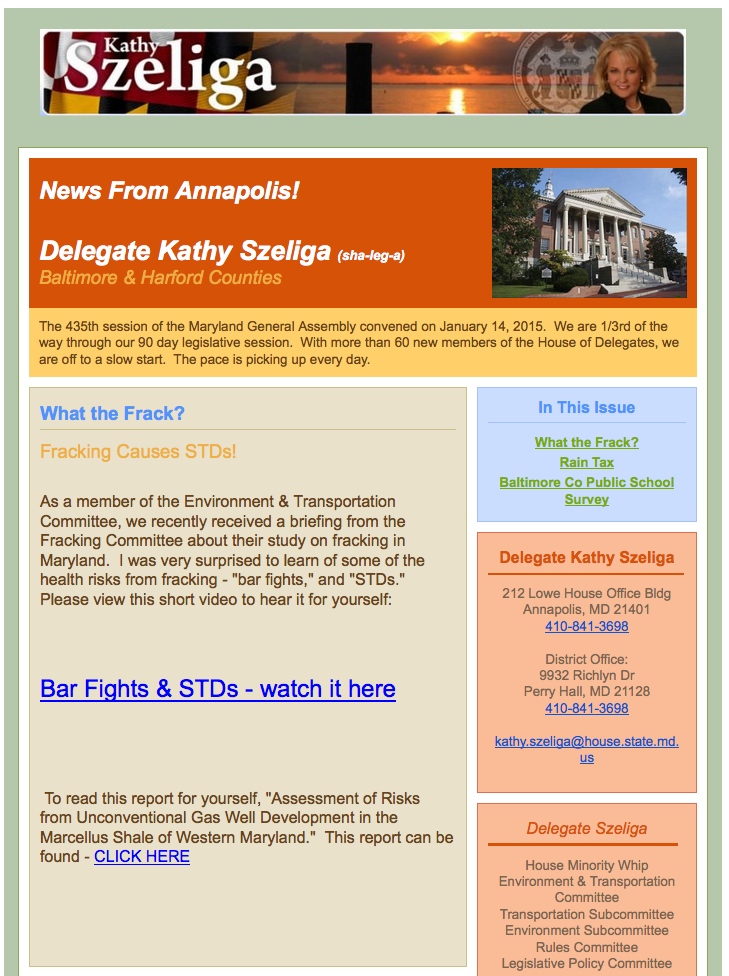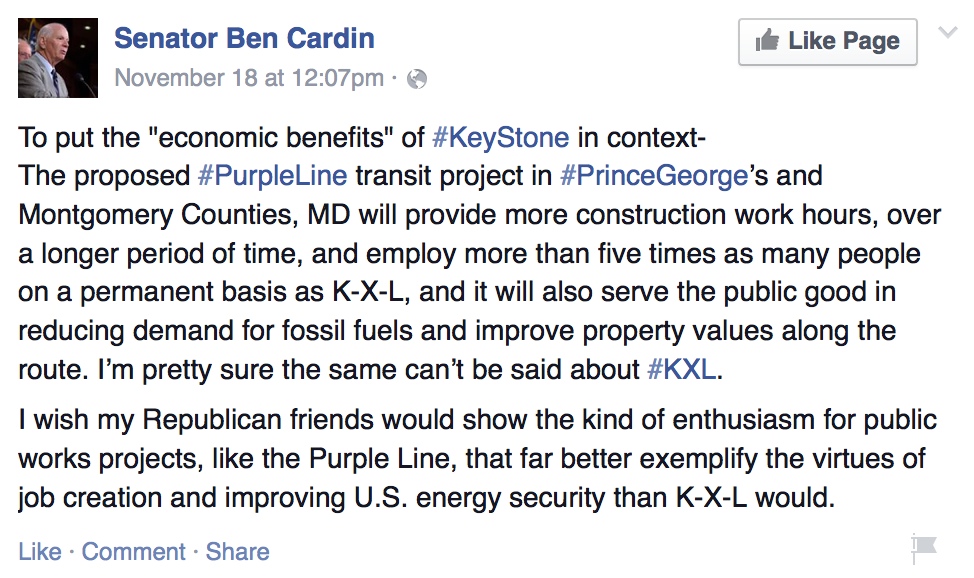By Adam Pagnucco.
The Chesapeake Climate Action Network (CCAN), one of Maryland’s major environmental organizations, is targeting County Council Members Tom Hucker (D-5) and Hans Riemer (At-Large) for not supporting a bill that would have required the county’s benefits funds to divest their holdings of fossil fuel company stocks. The bill, lead-sponsored by Council Members Roger Berliner (D-1) and Nancy Navarro (D-4) and co-sponsored by Council Member Marc Elrich (At-Large), was converted into a non-binding resolution because it could not gather five affirmative votes. The resolution was passed today.
Hucker has received numerous environmental endorsements during his history as a candidate. The Maryland League of Conservation Voters gave him a 99% lifetime score when he was in the House of Delegates. Riemer was endorsed by the Sierra Club in 2010 but not in 2014.
Following is the text of the blast email from CCAN Executive Director Mike Tidwell. CCAN is also asking its supporters to email Hucker.
*****
Subject Line: Time to keep up the divestment fight.
Dear ,
First, the good news: We made real progress today in divesting our county’s massive pension funds from dirty fossil fuels. The Montgomery County Council just passed a resolution encouraging the employee pension boards to finally STOP buying and holding stocks in companies like ExxonMobil and Arch Coal. This is a positive step.
However, it’s only a resolution. It’s not the stronger legislation – an actual bill – that CCAN and many of you had asked for.
By a vote of 8-to-1, the Council approved today the carbon divestment resolution sponsored by Council President Roger Berliner (thank you, Roger!). It asks the county pension boards to report in six months (and every 12 months after that) on efforts to divest from the 200 biggest global warming polluters. With record high temperatures, rising seas, and ExxonMobil basically running our nation’s foreign policy, it is outrageous that our county pension funds hold over $70 million in mega-pollution stock. It’s YOUR county money, after all.
Please thank your Councilmember Tom Hucker for voting for the divestment resolution. But remind Tom he’s pledged to get real results from this resolution. We need action, not delay, on dirty energy investments.
Over the past several months, many of you have attended town hall meetings and contacted the MoCo Council on this issue. You demanded that actual legislation – not just a resolution – be passed to move our county toward divestment. Thank you for your citizen activism! And big thanks to Councilmembers Roger Berliner, Nancy Navarro, and Marc Elrich for sponsoring and supporting this legislation!
But Councilmembers Tom Hucker (D-Silver Spring) and Hans Riemer (D-at large) never supported the stronger bill. And because they were swing votes, the bill died. Instead, Councilmember Hucker repeatedly told CCAN and other advocates that a nonbinding resolution was his preference. He pledged to use the resolution as leverage and then lead the fight to demand that the county’s two pension boards actually divest in the coming months.
Our message to Tom Hucker: Thank you for your efforts and we look forward to the real results you’ve said could come from your preferred resolution approach. We now want to invite Councilmember Hucker to a countywide town hall meeting exactly six months from now, where he and Hans Reimer will have the opportunity to update citizens on their efforts to persuade the pension boards to voluntarily divest from high-polluting companies.
Please thank your Councilmember Tom Hucker for voting for the divestment resolution. But remind Tom he’s pledged to get real results from this resolution. We need action, not delay, on dirty energy investments!
A little background now. For too long, our county has sought to lead on climate change policy while also investing tens of millions of dollars in the very companies whose business plans and actions are causing the climate crisis. It’s wrong to profit from these companies – and we don’t need to. The evidence is clear that properly diversified funds perform as well or better without fossil fuel companies. We don’t need to invest in ExxonMobil to have a healthy pension system.
The good news is that pension divestment can be accomplished, as we have seen from just a few miles away. The D.C. Retirement Board eliminated direct investments in the 200 most harmful fossil fuel companies shortly after a divestment resolution passed the D.C. Council in 2014.
But we’ll need real commitment from Montgomery leaders like Hucker and Riemer – and pressure from citizens like you – to replicate the D.C. success here.
So, on we go. Change is never easy, even in a progressive county like ours. We’ll be in touch in the coming months to update you on the next phase of the divestment fight in Montgomery County. And in November we’ll invite you to the big town hall meeting where we hope our leaders can confirm the real progress they’ve said is possible in the coming months.
And thanks again for all you do!
Best,
Mike Tidwell
Executive Director


